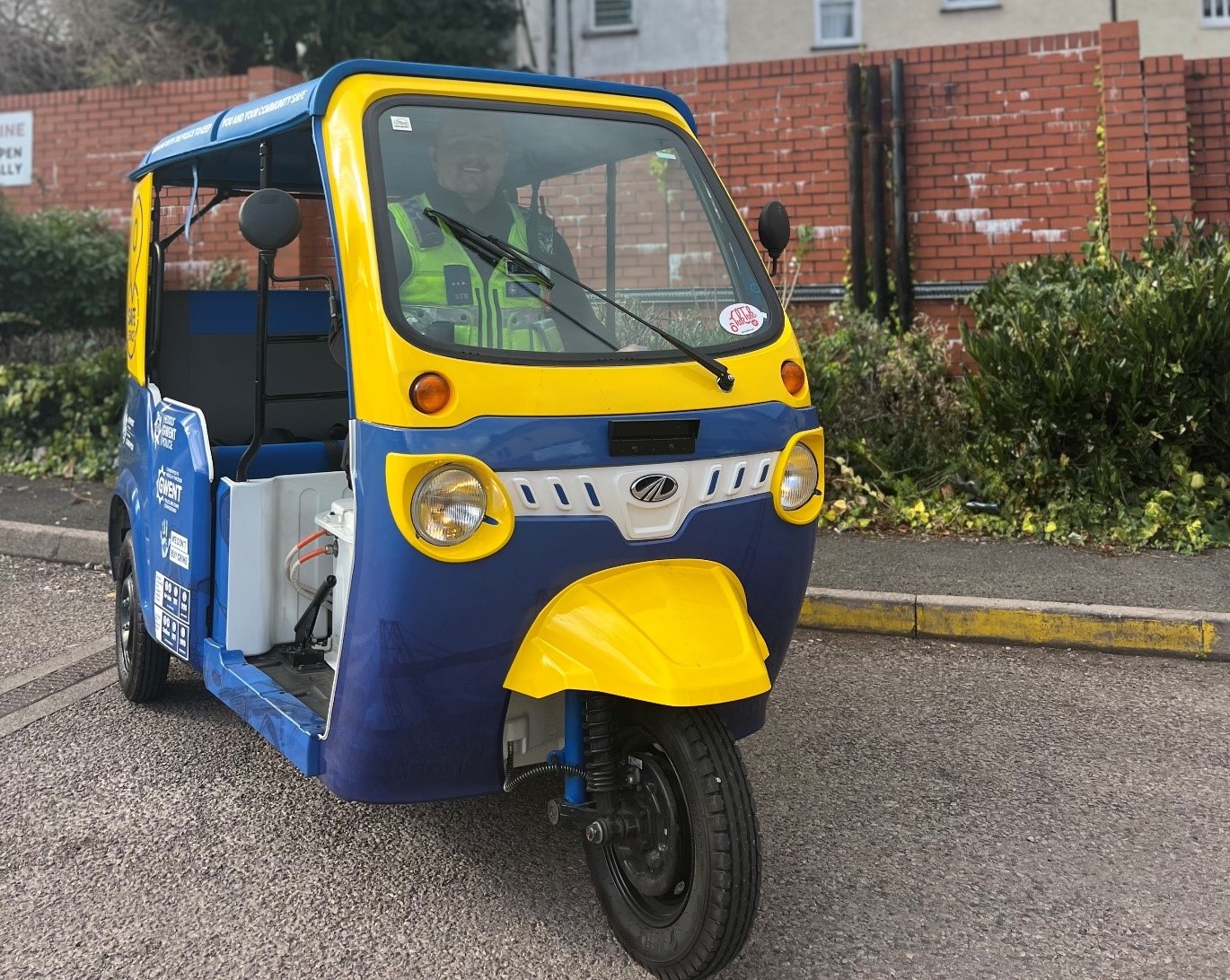A Welsh police force has spent almost £40,000 on four tuk-tuks which it claims will help officers fight crime.
Gwent Police revealed this month that it was rolling out the three-wheeled vehicles to patrol parks and other public spaces in Newport and Abergavenny in south-east Wales.
The rickshaw-style cars, known for their use as taxis primarily in Asian countries, will be deployed as “safe spaces” where people can report incidents and seek help if they are feeling unsafe.
The tuk-tuks were bought for £9,936 each, or a total of £39,744, according to a BBC Wales Freedom of Information (FOI) request.
A previous figure obtained through an FOI priced them at £16,974 each, just under £70,000 in total, but the force said that amount was incorrect.
The fleet was paid for by the Home Office from their Safer Streets programme, a fund aimed at tackling specific safety and crime prevention issues.
Officers and some Newport City Council employees will be able to drive the tuk-tuks in the day and night.
Their speed has been limited to 55 kilometres per hour, or just under 35 miles per hour.
Chief Inspector Damian Sowrey said members of the public have had the opportunity to see the tuk-tuks and the feedback has been “overwhelmingly positive”.
“They were on show at our Behind the Badge day, giving local residents the opportunity to see them up close and to hear more about how they will be used,” Mr Sowrey said.
“The feedback was overwhelmingly positive with parents telling officers that they would feel safer knowing that there was support for young people out at night, and from women who could think of an occasion when the tuk-tuk would have been a welcome sight.”
Mahindra Electric, which provided the “e-autos”, announced their involvement in the initiative on Twitter, writing: “Autos have been used as public transportation but Gwent police has different plans for them.
“We’re proud to be a part of such a noble initiative.”
There has been some criticism of the fleet online, with one user saying it will turn the force into a “laughing stock”.
Others suggested the vehicles could be easily pushed over, or stolen and set alight by criminals.

